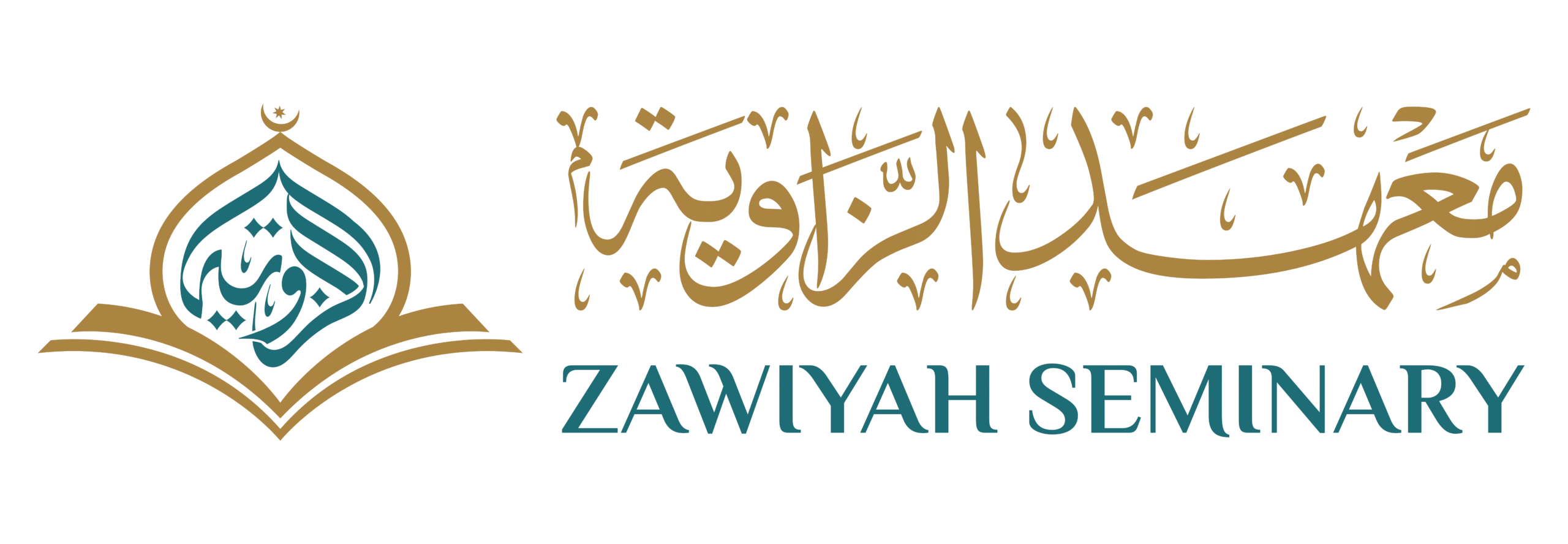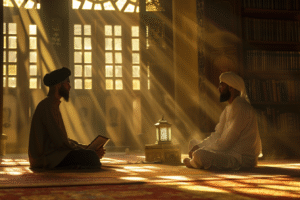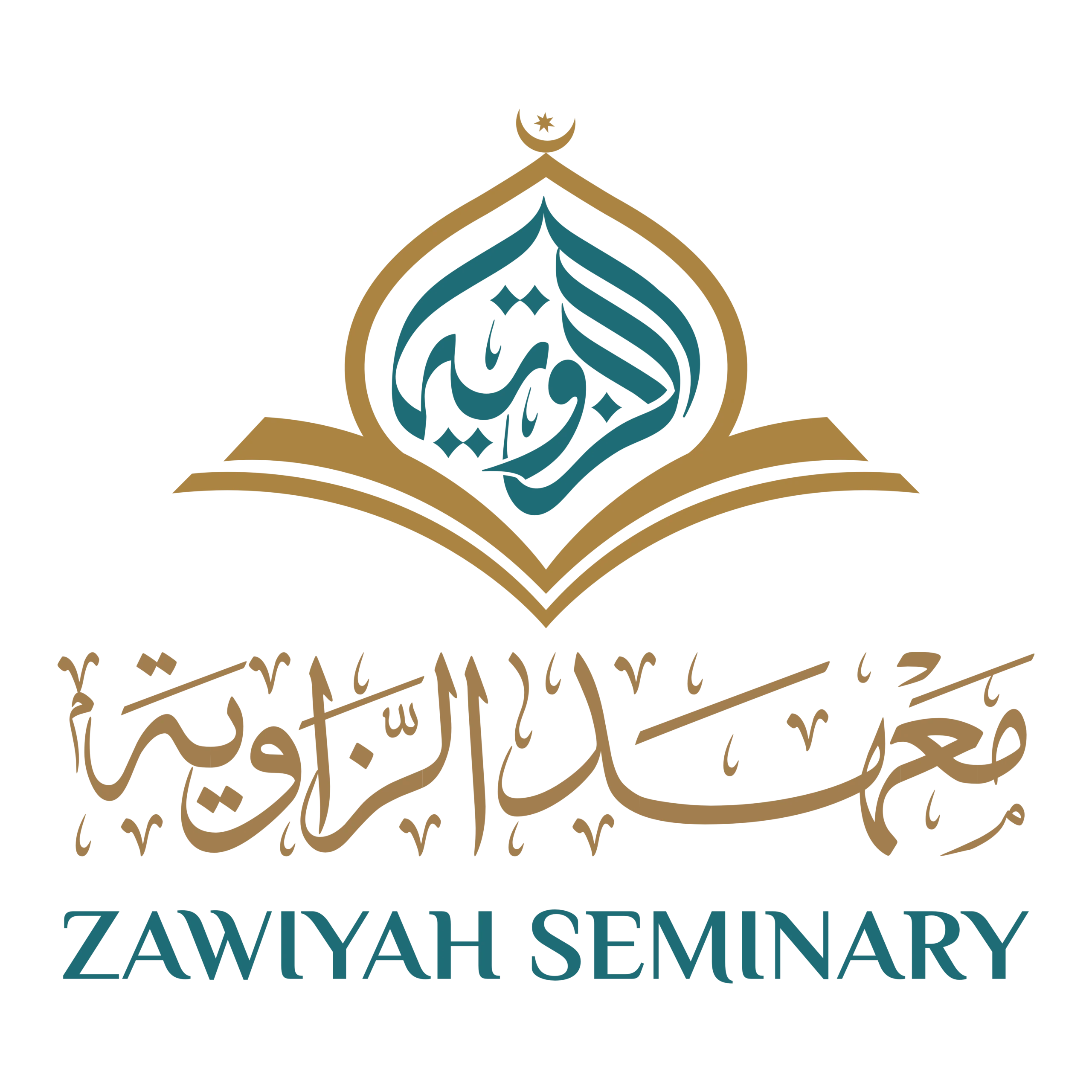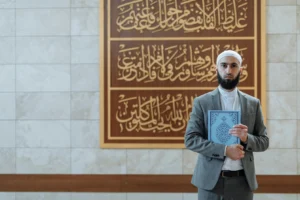The Sacred Trust: The Importance of Seeking Knowledge in Transmission
In the tradition of Islam, knowledge is not merely information to be consumed—it is a sacred trust (amānah) to be inherited, preserved, and passed on. From the earliest days of the Ummah, knowledge was transmitted heart to heart, mind to mind, through unbroken chains of trustworthy teachers and devoted students, linking us back to the Beloved Prophet Muhammad ﷺ. This process, known as isnād, is not only a means of protecting the authenticity of Islam’s teachings—it is an act of worship, a source of divine blessing, and a mark of spiritual nobility.
Imam Abd Allah ibn al-Mubarak رحمه الله famously said:
“الإسناد من الدين، ولولا الإسناد لقال من شاء ما شاء”
“The isnād is part of the religion. Were it not for isnād, anyone could say whatever they wanted.”
(Narrated in Muqaddimah of Sahih Muslim, and discussed by Ibn Hajar)
This principle is more urgent today than ever. In an age where misinformation is widespread, and where individuals declare religious rulings without proper grounding, the prophetic method of knowledge transmission is a lifeline. The unbroken chain of transmission protects not just facts, but meanings, manners, and methods—the entire way of life we know as Islam.
The Qur’anic Foundation for Seeking Knowledge
The Qur’an consistently emphasises sound knowledge and the authority of those who possess it:
“فَسْئَلُوا أَهْلَ الذِّكْرِ إِن كُنتُمْ لَا تَعْلَمُونَ”
“So ask the people of knowledge if you do not know.”
(Surah al-Nahl, 16:43)
“يَرْفَعِ اللَّهُ الَّذِينَ آمَنُوا مِنكُمْ وَالَّذِينَ أُوتُوا الْعِلْمَ دَرَجَاتٍ”
“Allah raises those among you who believe and those who are given knowledge in degrees.”
(Surah al-Mujadila, 58:11)
The Role of Isnād and Ijāzah
Isnād and ijāzah are not academic decorations. They are living traditions ensuring that what is taught was actually received, not invented. Imam Ahmad ibn Hanbal once dismissed a man who claimed to have “studied” without a teacher by asking, “Who did you study under?”
Imam Sufyan al-Thawri declared:
“الإسناد سلاح المؤمن، فإذا لم يكن معه سلاح فبأي شيء يقاتل؟”
“Isnād is the weapon of the believer. If he doesn’t have it, how will he fight?”
(Al-Khatib al-Baghdadi, al-Kifayah fi ’Ilm al-Riwayah)
Learning Beyond the Book: Adab and Nur
True Islamic learning isn’t just about acquiring information. It is a spiritual encounter—a transformation. Sitting with the ‘ulama gives us what no text or video can: the adab of learning, the nur of sincerity, and the wisdom of centuries.
Imam al-Shafi’i said:
“I spent years in the company of Imam Malik, not for knowledge, but for adab.”
Zawiyah Seminary: Carrying the Trust Forward
At Zawiyah Seminary, we are committed to preserving this sacred method of learning. Every instructor on our platform has a verified sanad or ijāzah in their subject area—whether Qur’anic sciences, Aqidah, Hadith, Fiqh, or Tasawwuf. Students who study with us don’t just gain knowledge—they enter a living chain of transmission, preserving the trust passed down from the Prophet ﷺ.
A Prophetic Dua for Knowledge Transmission
“نَضَّرَ اللهُ امرءًا سَمِعَ مِنَّا حَدِيثًا فبلَّغَهُ كَمَا سَمِعَهُ”
“May Allah illuminate the face of the one who hears a hadith from us and conveys it as he heard it.”
(Sunan al-Tirmidhi, 2657 – Hasan Sahih)
Our Final Reflection
In an era dominated by unverified voices and quick opinions, let us be from those who seek knowledge with chains, not just clicks. Let us learn with humility and uphold the integrity of our deen.
“قُلْ هَلْ يَسْتَوِي الَّذِينَ يَعْلَمُونَ وَالَّذِينَ لَا يَعْلَمُونَ”
“Say: Are those who know equal to those who do not know?”
(Surah al-Zumar, 39:9)
“وَقُل رَّبِّ زِدْنِي عِلْمًا”
“And say: My Lord, increase me in knowledge.”
(Surah Taha, 20:114)
May Allah make us seekers of sacred knowledge, bless us with righteous teachers, and include us among those who preserve and pass on the light.
Ameen.







